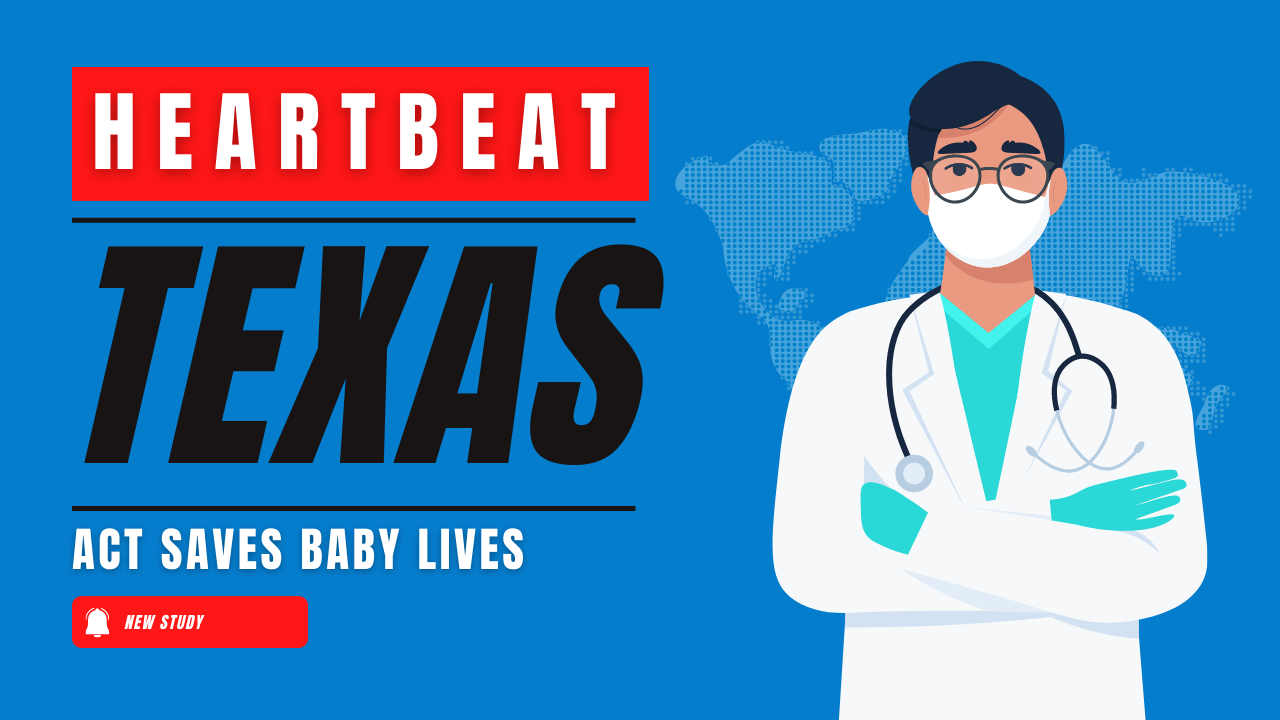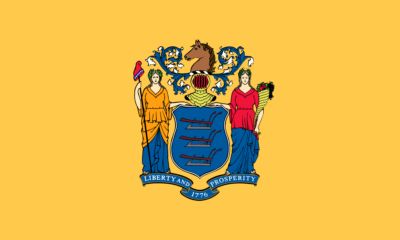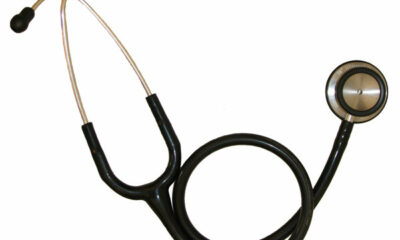Family
Texas Heartbeat Act saves baby lives – study
A new Johns Hopkins University study suggests the Texas Heartbeat Act might have saved 10,000 lives over eight months in 2022.

A major public-health study suggests the Texas Heartbeat Act might have saved nearly 10,000 baby lives in its first year. This study apparently does not account for new laws Texas passed after the decision revoking federal judicial protection for abortion.
Texas Heartbeat Act – how effective
The study, from the Bloomberg School of Public Health (Johns Hopkins University), examined live birth data in Texas from April through December 2022. The only new law that had come into effect during that entire time was the Texas Heartbeat Act. (New laws in Texas take effect September 1 of the year of enactment, barring an emergency immediate-effect provision.) Researchers then modeled how many live births would have occurred without the Texas Heartbeat Act. They based their model on seven years of live-birth data in all fifty States, and the District of Columbia.
The study authors calculated that, without the Act, 287,289 live births would have occurred during the study period. Instead they counted 297,088 – or 9,799 more – during that period. Bell S.O., Stuart E.A., and Gemill A., “Texas’ 2021 Ban on Abortion in Early Pregnancy and Changes in Live Birth,” JAMA, June 29, 2023: doi:10.1001/jama.2023.12034.
The Journal of the American Medical Association also took note of abortion mills moving across State lines to continue operation.
What the Act does, and doesn’t do
The Texas Heartbeat Act (SB 8, 2021) provides that any citizen of Texas has standing to sue an abortion provider who performs an abortion:
- Without first checking for a heartbeat, or
- In the face of a heartbeat they have, in fact, detected.
CNAV knows of one lawsuit that anyone filed under the Act, and the “plaintiff” was likely trolling the legal system. We know of no pro-life activists who set up any kind of reporting or litigation mechanism after the Act passed. But the Act definitely had its effect. A study published last fall showed that abortions in Texas declined precipitously from the year before the Act, to the first six months of the Act. Out-of-state abortions did increase, showing that “abortion tourism” also had an effect – but did not completely cancel this out. Total abortions, in-state and out-, also declined in the first six months of the Texas Heartbeat Act.
Thus at least one of these studies did not even measure the effect of any “trigger law” that went into effect after the Dobbs decision. Dobbs v. Jackson Women’s Health Organization, 597 U.S. ____ (2022).
The Texas safe-haven law
Texas has a “Safe Haven” law, that lets mothers drop unharmed babies, in the first 60 days of life, at any fire station, hospital, or Emergency Medical Services center. The Texas legislature, in this term, acted to expand the safe havens, effective this September, to include police stations. Since 2009, and up to two days post-Dobbs, 172 mothers had dropped their babies off this way.
Terry A. Hurlbut has been a student of politics, philosophy, and science for more than 35 years. He is a graduate of Yale College and has served as a physician-level laboratory administrator in a 250-bed community hospital. He also is a serious student of the Bible, is conversant in its two primary original languages, and has followed the creation-science movement closely since 1993.
-

 Accountability3 days ago
Accountability3 days agoWaste of the Day: Principal Bought Lobster with School Funds
-

 Executive1 day ago
Executive1 day agoHow Relaxed COVID-Era Rules Fueled Minnesota’s Biggest Scam
-

 Civilization8 hours ago
Civilization8 hours agoWhy Europe Shouldn’t Be Upset at Trump’s Venezuelan Actions
-

 Constitution2 days ago
Constitution2 days agoTrump, Canada, and the Constitutional Problem Beneath the Bridge
-

 Civilization1 day ago
Civilization1 day agoThe End of Purple States and Competitive Districts
-

 Christianity Today8 hours ago
Christianity Today8 hours agoSurprising Revival: Gen Z Men & Highly Educated Lead Return to Religion
-

 Civilization5 days ago
Civilization5 days agoThe devil is in the details
-

 Executive20 hours ago
Executive20 hours agoWaste of the Day: Can You Hear Me Now?














